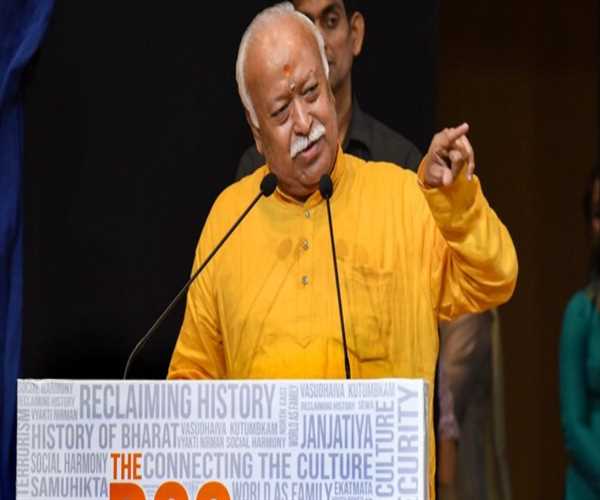
21-Jun-2024 , Updated on 8/13/2025 7:08:50 AM
What is the history of RSS?
Rashtriya Swayamsevak Sangh, a right-wing Hindu nationalist group in India, is what RSS, which is frequently mentioned in headlines and online debates, might stand for. This blog explores the latter's history, including its beginnings, development, and position in modern-day India.
1925: The Nationalism Seeds Are Sown
Keshav Baliram Hedgewar, a physician in Nagpur, British India, formed the RSS in 1925. Hedgewar was impacted by the growing movement of Indian nationalism against British authority. He was the political heir to a well-known nationalist leader. The RSS was unique among nationalist groups, though, in that it placed a strong focus on Hindu identity and cultural revitalization.
Emphasis on Hindu Traditions and Laws
Hedgewar hoped that the RSS would foster a sense of Hindu unity among its members and inculcate "Hindu discipline" in them. The group implemented a special system known as "Shakhas," in which talks on Hindu history and culture, physical training, and ideological indoctrination were the main topics of each day's sessions.
The RSS actively took part in disaster relief and hygiene education initiatives, among other social service projects. The RSS is criticized for promoting Hindu supremacy and the idea that India is a Hindu nation.
A Stormy History: Banned and Re-Banned
The past of the RSS has been turbulent. The Indian government outlawed it on many occasions, chiefly following Mahatma Gandhi's 1948 assassination. Despite the RSS's denial of involvement, some of its members were named. Although the organization's prohibition was revoked in 1949, criticism persisted because of its beliefs and ties to Hindu nationalism.
The Bharatiya Janata Party's (BJP) Ascent
There is a long-standing connection between the RSS and the popular Indian political organization, the Bharatiya Janata organization (BJP). Many prominent members of the BJP, including India's current prime minister, Narendra Modi, have links to the RSS. Even though the BJP prides itself on being a secular party, its dedication to a diverse India has come under scrutiny.
Initiatives for Social Welfare and Education
Through a number of social welfare and educational programmes, the RSS has increased its visibility in India despite the concerns. The organization primarily serves Hindu populations by managing schools, hospitals, and vocational training facilities.
A Complicated Legacy: Nationalism, Charity, and Disagreement
The RSS is still a convoluted and contentious entity. Advocates perceive it as a patriotic institution advocating for social welfare and cultural revitalization. It is perceived by some as a supporter of Hindu nationalism and a danger to India's secular structure.
The RSS's Prospects: Changing Position in Indian Politics
The connection between the RSS and the BJP government will be constantly monitored since it remains a powerful influence in Indian politics. How the RSS manages to balance its nationalist beliefs with the necessity for an inclusive India remains a question for the future.
Recognizing the Details: Going Beyond Headlines
It's critical to comprehend the RSS in addition to the headlines. It's important to acknowledge its contentious elements while also appreciating its social service programs and its influence on Indian nationalism.
An Appeal for Free Discussion: Overcoming Divisions
Promoting tolerance across religious differences and encouraging free discourse are essential in today's India. Analyzing the history of the RSS facilitates fruitful discussions on the future of the nation and offers a more nuanced view of its place in Indian culture.

CONTENT WRITER
Writing is my thing. I enjoy crafting blog posts, articles, and marketing materials that connect with readers. I want to entertain and leave a mark with every piece I create. Teaching English complements my writing work. It helps me understand language better and reach diverse audiences. I love empowering others to communicate confidently.
Comments
Join Our Newsletter
Subscribe to our newsletter to receive emails about new views posts, releases and updates.
Copyright 2010 - 2026 MindStick Software Pvt. Ltd. All Rights Reserved Privacy Policy | Terms & Conditions | Cookie Policy